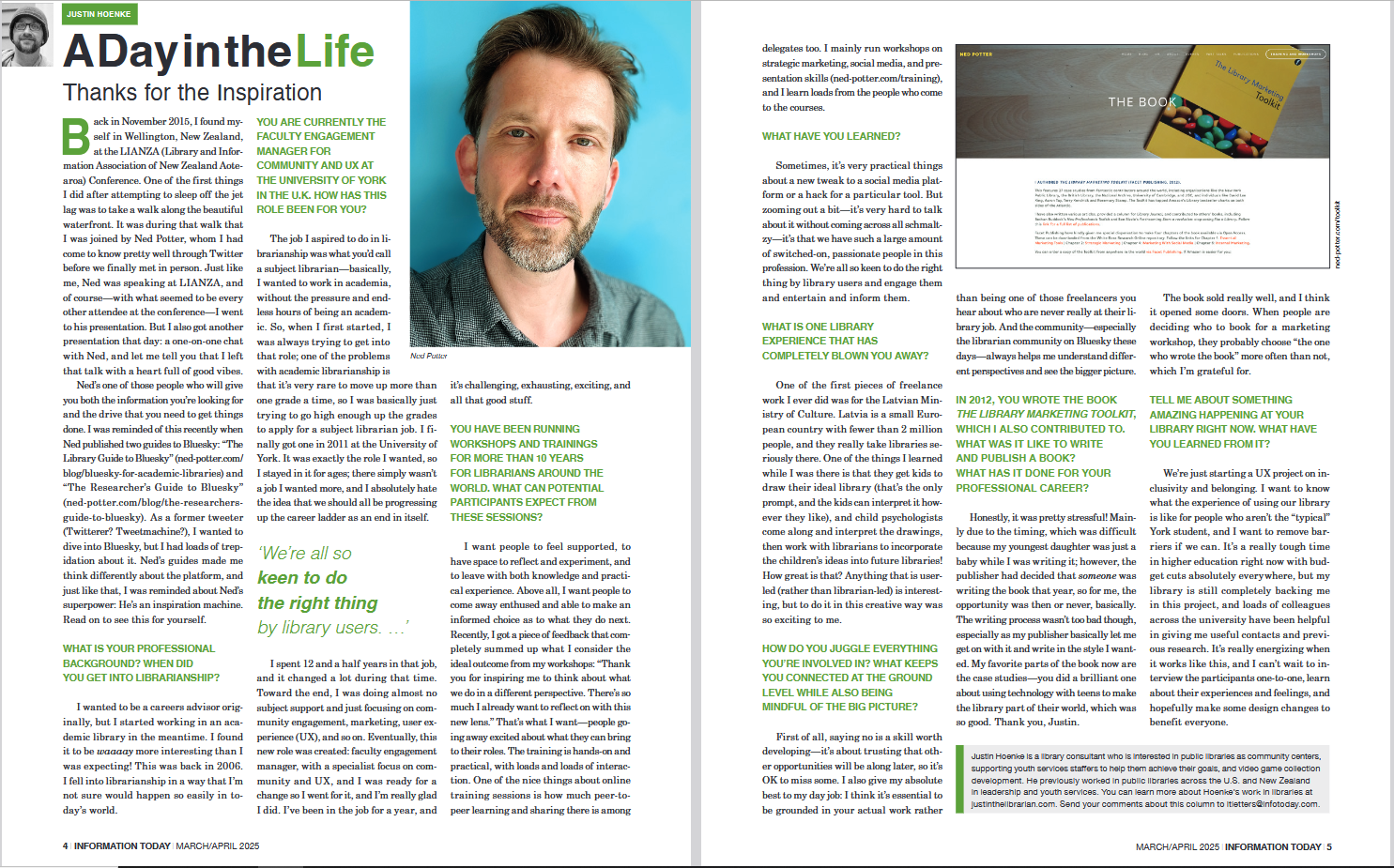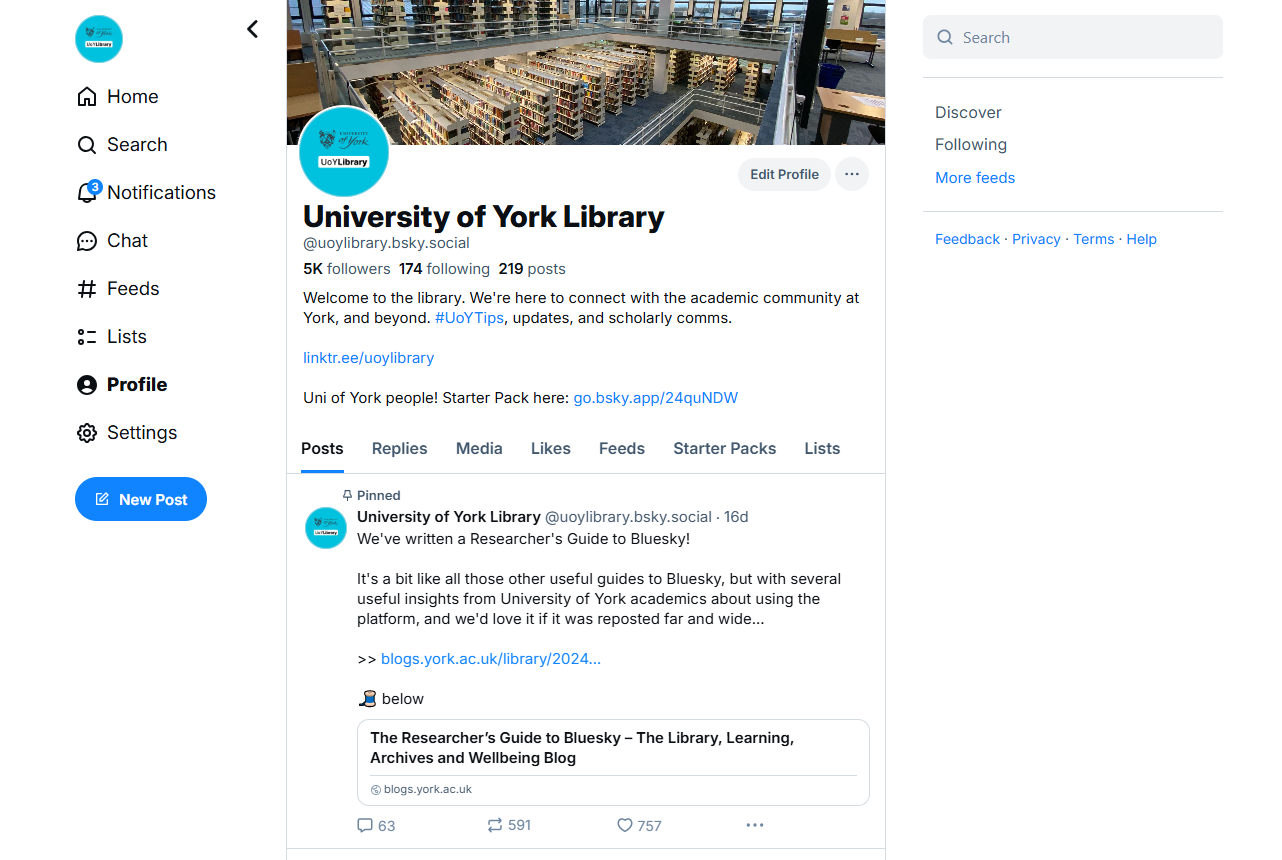The library landscape is incredibly bleak at the moment with events in the US, so I wanted to flag up a couple of brilliant examples of library innovation that might give information professionals reason to smile.
In March I presented at the Edge Public Library Conference in Edinburgh - hence the header pic of that beautiful city - on Social Media for Public Libraries in a Post-Twitter world. (The organisers asked me to do this after hearing people say nice things about a similar session I'd done in Kilkenny - if you're interested the slides from that are not identical but cover the same theme.) It was a brilliant event, very uplifting, and huge thanks to Gráinne Crawford and her team for inviting me and making me feel so welcome.
As part of the same conference they have three Innovation Awards and I was honoured but somewhat daunted to be asked to judge the Digital category. Edge 2025 had lots of nominations and I was sent the four finalists - my job was to pick the winner and the highly commended, who would be invited to the Gala Dinner to receive their awards. Here is a summary of the winning entry and first runner-up - I found reading their entries good for the soul.
Highly commended: Tickets for the Afterlife
Tickets For the Afterlife is a web-app to "…help users navigate choices related to their body, memories, and legacies after death." It's not the typical thing a library would provide, but Redbridge saw a need to help their community and learned the skills required to make it happen - and they executed it so, so well. You can read a Guardian article about it here but honestly I’d recommend experiencing it for yourself at afterlifetickets.co.uk.
I loved this whole project, and it's beautifully done - here's what I wrote to be read out at the Awards:
“I’ve been in librarianship for a long time, and I can’t remember seeing such an original idea as this. We like to think of libraries as being at the heart of community but that doesn’t happen automatically - we have to make it happen by getting our communities where they need to go. Redbridge identified a unique way to provide support to their community and beyond, in an area that is absolutely universal - dying, death and grief - and did so in such a friendly, accessible way. Tickets for the afterlife is beautifully put together, completely unique, and hugely valuable - a brilliant piece of work.”
Huge congrats to Anita Luby and Redbridge Libraries on a truly different, innovative service.
Winner: The Hive
Darlington Borough Council created The Hive, a digital hub with virtual reality gear, coding and robotics, 3D printing, animation, digital sewing and quite a lot more. (In fact you can get a good idea of what's on offer by checking the 'what's on' section at the bottom of the Darlington Libraries homepage).
I know that there are quite a few libraries creating maker spaces and so on, but the way Darlington have done this is fantastic - it's a beautiful space, and full of creativity. The reason I chose it as the winner is the extraordinary impact it has had - as Suzy Hill said in her award application, footfall was down, book issues were decreasing and the perception of the digital offering was that it was poor, and The Hive has completely changed that to an amazing degree. Visitors are up by so much, and so is everything else - I feel like they've changed what a library MEANS to the people of their community, and gone from struggle to real triumph.
Here's the comments I wrote which were read out at the Gala Dinner, to announce the winner:
“‘The Hive’s digital transformation has been extraordinarily successful. Sometimes the word ‘digital’ can be overused and be so general it loses all meaning, but what Darlington have done is made the digital tangible - they’ve made digital resources and activities of so many kinds available to groups who really need and appreciate them. In doing so I’m confident they redefined the idea of what a public library IS for their local community, and have converted scores of youngsters into lifelong library users. I’ve chosen them as winners partly due to the sheer impact of what they’ve done - this digital transformation has had a halo effect on all their services. Borrowing is up, digital borrowing is up, educational interactions are up, website use is up and the number of people visiting the library is way up. People come for the digital transformation, and they STAY for everything else we have to offer in libraries. Finally, it’s hard to imagine better feedback for anything, ever, than this comment from a Year 3 pupil who visited The Hive: “This is the best day of my entire life!” Congratulations to our incredible winners!’”
I love this project: I found The Hive's work to be uplifting, hopeful and genuinely inspiring.
Edge2025 was brilliant - I missed some talks I really wanted to see on Day 2 as I was hot-footing it to Dublin for another talk, but I can wholeheartedly recommend the conference if you’re able to go next year.



